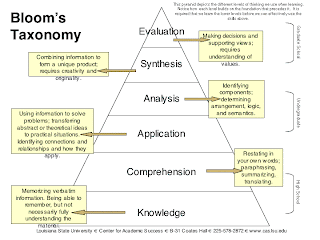Definition
Mastery learning proposes that all children can learn when provided with the appropriate learning conditions in the classroom.
Discussion
The application of mastery learning is based on Benjamin Bloom’s Learning for Mastery model, with refinements made by Block. Mastery learning is predominantly a group-based, teacher-paced instructional approach, in which students learn by cooperating with their classmates. However, some mastery learning strategies require students to work independently, rather than with classmates.
How Mastery Learning Affects Education
Curriculum–Mastery learning does not focus on content, but on the process of mastering it. This type of learning works best with the traditional content-focused curriculum, one based on well-defined learning objectives organized into smaller, sequentially organized units.
Instruction–This strategy captures many of the elements of successful tutoring and the independent functionality seen in high-end students. In a mastery learning environment, the teacher directs a variety of group-based instructional techniques. The teacher also provides frequent and specific feedback by using diagnostic, formative tests, as well as regularly correcting mistakes students make along their learning path.
Assessment–Teachers evaluate students with criterion-referenced tests rather then norm-referenced tests. Mastery learning ensures numerous feedback loops, based on small units of well-defined, appropriately sequenced outcomes.


No comments:
Post a Comment